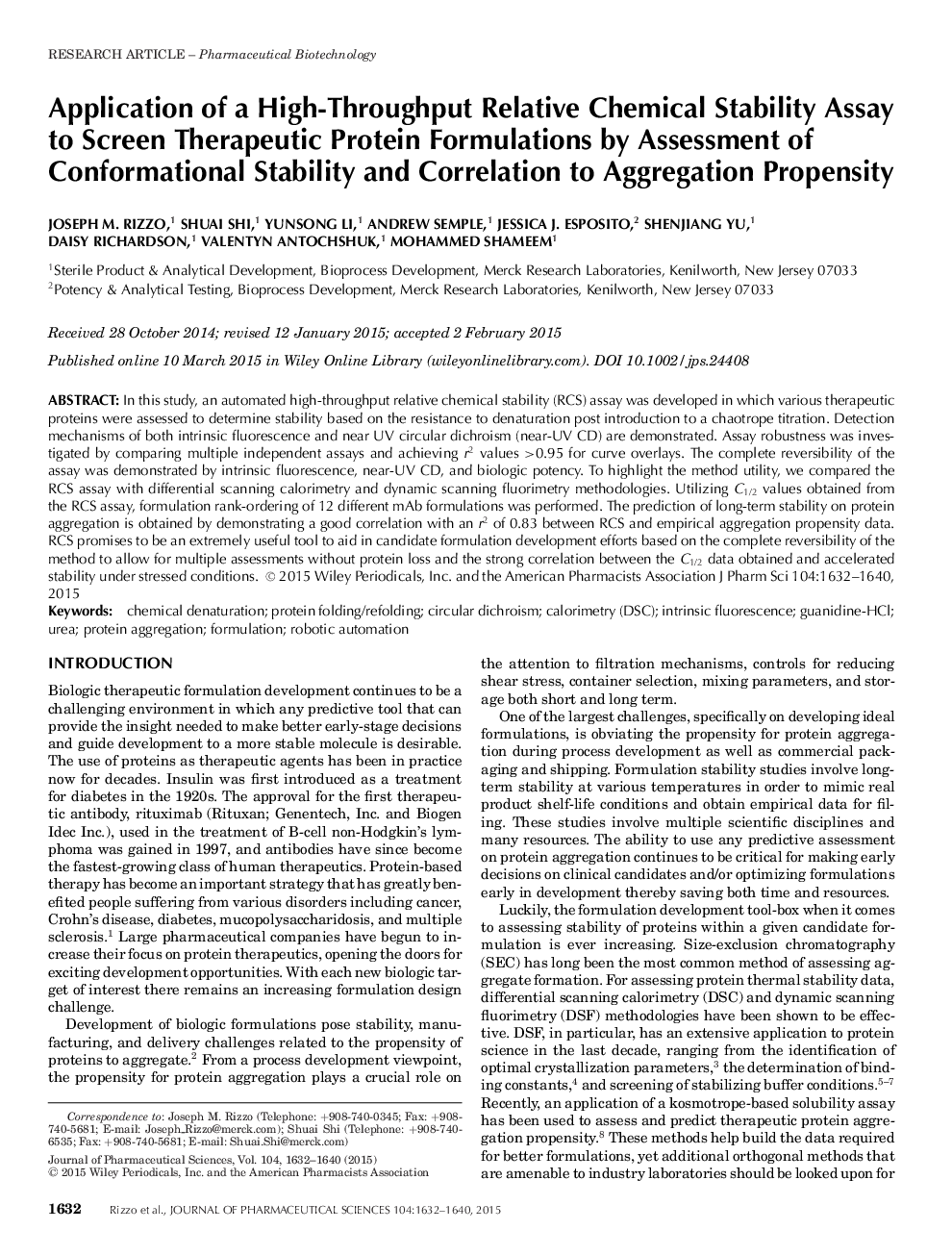| Article ID | Journal | Published Year | Pages | File Type |
|---|---|---|---|---|
| 10162086 | Journal of Pharmaceutical Sciences | 2015 | 9 Pages |
Abstract
In this study, an automated high-throughput relative chemical stability (RCS) assay was developed in which various therapeutic proteins were assessed to determine stability based on the resistance to denaturation post introduction to a chaotrope titration. Detection mechanisms of both intrinsic fluorescence and near UV circular dichroism (near-UV CD) are demonstrated. Assay robustness was investigated by comparing multiple independent assays and achieving r2 values >Â 0.95 for curve overlays. The complete reversibility of the assay was demonstrated by intrinsic fluorescence, near-UV CD, and biologic potency. To highlight the method utility, we compared the RCS assay with differential scanning calorimetry and dynamic scanning fluorimetry methodologies. Utilizing C1/2 values obtained from the RCS assay, formulation rank-ordering of 12 different mAb formulations was performed. The prediction of long-term stability on protein aggregation is obtained by demonstrating a good correlation with an r2of 0.83 between RCS and empirical aggregation propensity data. RCS promises to be an extremely useful tool to aid in candidate formulation development efforts based on the complete reversibility of the method to allow for multiple assessments without protein loss and the strong correlation between the C1/2data obtained and accelerated stability under stressed conditions. © 2015Wiley Periodicals, Inc. and the American Pharmacists Association J Pharm Sci 104:1632-1640, 2015
Keywords
Related Topics
Health Sciences
Pharmacology, Toxicology and Pharmaceutical Science
Drug Discovery
Authors
Joseph M. Rizzo, Shuai Shi, Yunsong Li, Andrew Semple, Jessica J. Esposito, Shenjiang Yu, Daisy Richardson, Valentyn Antochshuk, Mohammed Shameem,
